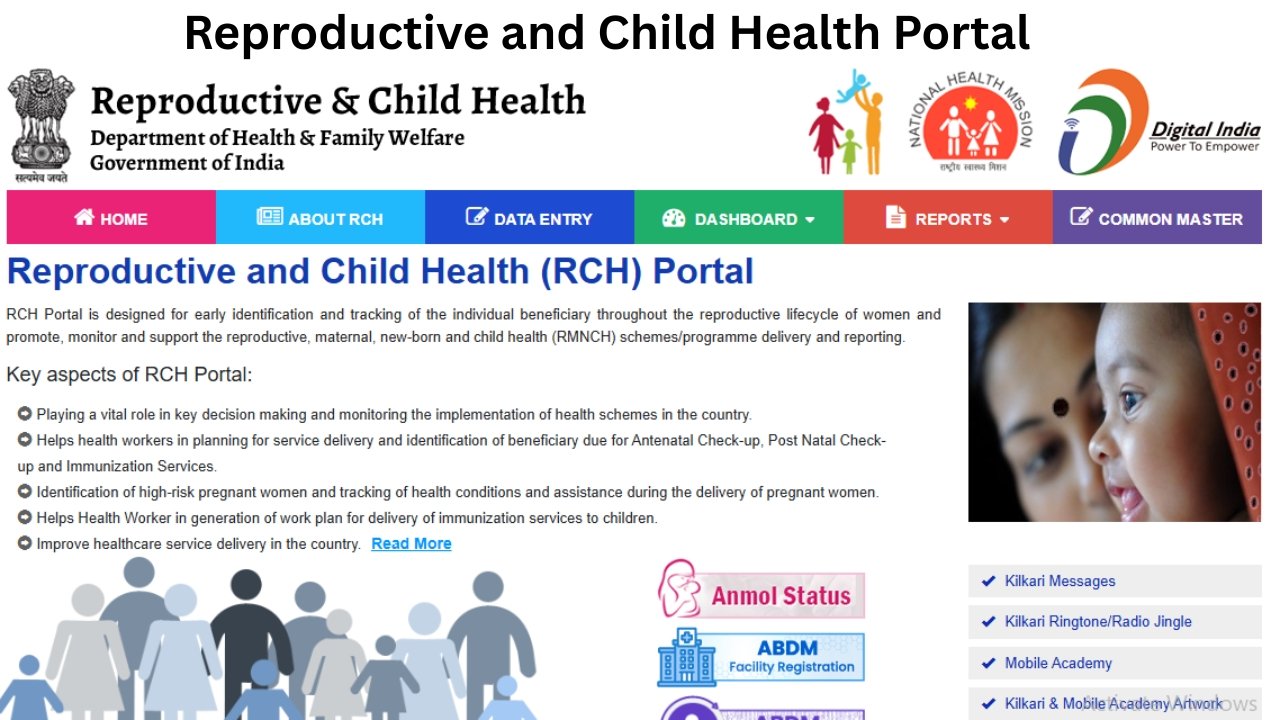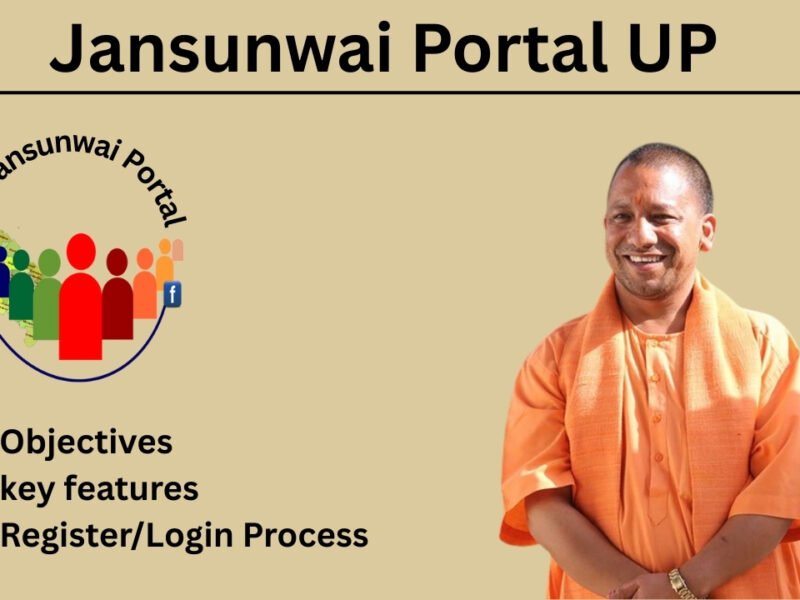In India’s ongoing effort to improve public health, especially for mothers and children, the Reproductive and Child Health (RCH) Portal plays a pivotal role. Launched under the National Health Mission (NHM), this digital platform streamlines tracking, reporting, and service delivery throughout a woman’s reproductive journey. Far beyond a simple registry, it offers a comprehensive, integrated approach to ensure transparency, accountability, and better health outcomes.
What Is the RCH Portal?
The RCH Portal is India’s digital answer to track and support the beneficiaries of all reproductive, maternal, newborn, and child health (RMNCH) services. The portal allows identification of pregnant women and children at an early stage and brings timely intervention, proper documentation, and data-driven decision-making at the various levels of care.
Beneficiary life-cycle tracking: The portal tracks every stage, from pre-conception and post-delivery care to immunization of children, along the journey of a child and a mother.
Integrated reporting: It pools information at the field level by health workers to district and state levels to facilitate policy-making and resource allocation.
Objectives of RCH Portal
- Enhance Maternal Care: Track pregnancies from registration to delivery, monitor high-risk cases, and ensure timely interventions for better maternal health outcomes.
- Improve Child Health: Monitor immunization schedules, growth milestones, and early detection of childhood illnesses through comprehensive digital tracking.
- Centralize Data Management: Create integrated health databases for real-time reporting, analytics, and evidence-based decision making across healthcare systems.
- Coordinate Service Delivery: Streamline care across different healthcare levels, ensuring seamless referrals and continuity of treatment.
- Monitor Quality Standards: Track performance indicators, identify service gaps, and implement quality improvement initiatives for consistent healthcare delivery.
Benefits of RCH Portal
Here are the key benefits of the RCH Portal that make it an essential tool for improving reproductive and child health services nationwide:
1) Empowering Women with Timely Care
The RCH Portal helps pregnant women receive timely antenatal checkups, essential health services, and delivery support. It identifies high-risk pregnancies early and ensures women are connected to schemes like Janani Suraksha Yojana (JSY) and PMMVY for financial and medical assistance.
2) Protecting Children Through Immunization
One of the core benefits of the portal is tracking child vaccinations. Parents can monitor immunization schedules and receive automated reminders, reducing the risk of preventable diseases and improving child survival rates.
3) Simplifying Work for Health Workers
ANMs and ASHAs can record data in real-time using the ANMOL App connected to the RCH system. This reduces paperwork, improves service planning, and helps health workers focus on quality care and timely interventions.
4) Strengthening Health Governance
Government officials can access accurate, real-time data to evaluate healthcare performance, plan budgets, and identify service gaps. The portal enhances transparency and accountability at all administrative levels.
5) Bridging Gaps in Rural Healthcare
By digitizing maternal and child health records, the RCH Portal ensures remote areas receive equal access to healthcare services, improving public health outcomes across urban and rural India.
Who Is Eligible to Avail Benefits Through the RCH Portal? – Eligibility Criteria
The RCH Portal is mainly focused on reaching vulnerable populations so that they may benefit from necessary maternal and child health care. Knowing the eligibility criteria ensures beneficiaries obtain the appropriate care and government schemes easily. These are the people who can benefit from the RCH Portal:
Pregnant Women: Any pregnant woman, whether old or young, wherever she may be, can register on the RCH Portal so that she can benefit from antenatal care, delivery assistance, and other related health care services.
Lactating Mothers: Recently delivered mothers are covered under postnatal care, nutrition benefits, and immunization tracking of children.
Steps to Self-Register on RCH Portal for Pregnant Women
Pregnant women can register themselves without visiting any health center. Here’s how:
- Go to https://rch.mohfw.gov.in/.
- Click on “Self Registration” under the “Data Entry” tab
- Select your state and district
- Fill in details like your name, age, address, last menstrual period (LMP), expected date of delivery (EDD), and mobile number.
- Submit the form. You’ll receive a confirmation message with your unique RCH ID.
- This RCH ID can be employed during your entire pregnancy to receive services and track health check-ups.
Required Documents to Avail Benefits Through the RCH Portal
To enroll and benefit through the RCH Portal, beneficiaries are required to submit some necessary documents. These assist in ascertaining identity, eligibility, and free flow of access to health services for children and mothers. The typically needed documents are:
- Bank Account Details: For direct transfer of benefits under schemes such as PMMVY or JSY.
- Aadhaar Card: As identity proof and for connecting health records with the national database.
- Mobile Number: For OTP (One Time Password) verification and receiving crucial alerts or messages.
- Proof of Pregnancy: Like a medical certificate or ultrasound report declaring pregnancy (particularly for pregnant women registering for antenatal services).
- Ration Card or Income Certificate: In some states to ascertain eligibility for government welfare programs.
- Birth Certificate: For infants or children when applying for immunization and child health services.
- Address Proof: Like a voter ID, ration card, or utility bill to establish residence, particularly for location-based services.
- Photograph: Recent passport photo for beneficiary records (state varies).
What Is High-Risk Pregnancy Alert in RCH Portal?
How Expectant Mothers Can Sign Up on the RCH Website Women who are pregnant have the option to create an account without going to a health facility. Here’s what to do:
- Visit https://rch.nhm.gov.in.
- Look for “Self Registration” under “Data Entry” and click it.
- Choose your state and district from the list.
- Enter your information, including your name age where you live when your last period was when your baby is due, and your phone number.
Send in the form. You’ll get a message confirming your unique RCH ID. You can use this RCH ID throughout your pregnancy to get services and keep track of your health check-ups.
Read More: Seva Sindhu Portal | Jansunwai Portal UP | CEIR Portal
How to Get RCH Portal App for Mobile?
Up to now, there is no public-facing RCH Portal app that can be accessed on Google Play Store or App Store. But:
- Health workers utilize the ANMOL app, which is connected to the RCH database.
- Beneficiaries are able to access services via the mobile-friendly RCH website.
In case a public mobile app is made available in the future, it is likely to have features like self-registration, health alerts, reminders for ANC visits, and vaccination updates
Final Word: Why the RCH Portal Matters
In summary, the RCH Portal isn’t merely a digital registry—it’s a force multiplier in India’s public health mission. By knitting together the entire RMNCH lifecycle—from birth to childhood, across prevention, delivery, immunization, and planning—it empowers:
- Mothers and families, by granting them control and visibility.
- Healthcare workers, by enabling efficient outreach and data entry.
- Policy-makers, through rich analytics.
- The nation, via systematic reductions in mortality rates and service gaps.
As India moves toward robust health infrastructure, digital tools like the RCH Portal—paired with state-level innovation—stand as proof that health for all can, indeed, be inclusive, responsive, and effective.
Frequently Asked Questions (FAQs) About the RCH Portal
Q1. What is the RCH Portal used for?
A- The RCH Portal is an online platform developed by the Ministry of Health and Family Welfare to track and manage reproductive, maternal, newborn, and child health services. It helps monitor pregnancies, immunizations, and other health services across India.
Q2. How can I get my RCH ID number?
A- You can get your RCH ID by visiting the RCH Portal and clicking on “Know Your Health Records.” Enter your details like name, mobile number, and location to retrieve your ID. Alternatively, contact your ANM or ASHA worker.
Q3. Can I register for RCH services online without visiting a health center?
A- Yes, self-registration is available on the RCH Portal. Pregnant women and parents of newborns can enter their details online through the Self-Registration section and generate an RCH ID.
Q4. Is the RCH Portal only for pregnant women?
A- No. While it primarily focuses on maternal health, it also covers child immunization, family planning, adolescent reproductive health, and safe abortion services.
Q5. How do I check my child’s vaccination schedule on the RCH Portal?
A- Visit the “Know Your Health Records” section, select the child option, enter the required details (DOB, location, etc.), and view the vaccination status and upcoming due dates.
Q6. What should I do if my RCH data is incorrect?
A- Contact your local health worker or the data entry center where your registration was done. You can also raise a helpdesk ticket on the RCH Portal with your RCH ID and the correct information.
Q7. What is a high-risk pregnancy flag in the RCH Portal?
A- The portal flags high-risk pregnancies based on specific health indicators like age, previous complications, anemia, or existing conditions. It helps prioritize care and timely referrals.
Q8. Is it necessary to link Aadhaar with the RCH Portal?
A- Aadhaar is not mandatory, but linking it is recommended for identity verification and accessing additional government health schemes easily.
Q9. Can private hospitals access or update RCH Portal data?
A- Some states have mandated private clinics, especially ultrasound centers, to update pregnancy details using RCH IDs. This helps maintain uniform tracking and prevent sex-selective practices.
Q10. What is the difference between RCH Portal and ANMOL App?
A- The RCH Portal is a web-based tracking platform used by health workers and beneficiaries. ANMOL is a mobile app specifically for health workers (like ANMs) to enter real-time data and provide outreach services.
Q11. What kind of reports can be generated from the RCH Portal?
A- District and state-level administrators can generate reports on antenatal care, deliveries, immunization coverage, high-risk cases, and service gaps. These are used for planning and health strategy improvements.
Q12. How secure is my data on the RCH Portal?
A- The portal uses OTP-based login and follows government data protection norms. Only authorized personnel can access sensitive information, and user data is protected through encryption and verification protocols.
Must Read: My Bharat Portal | Banglar Shiksha SMS Portal | Odisha State Scholarship Portal


